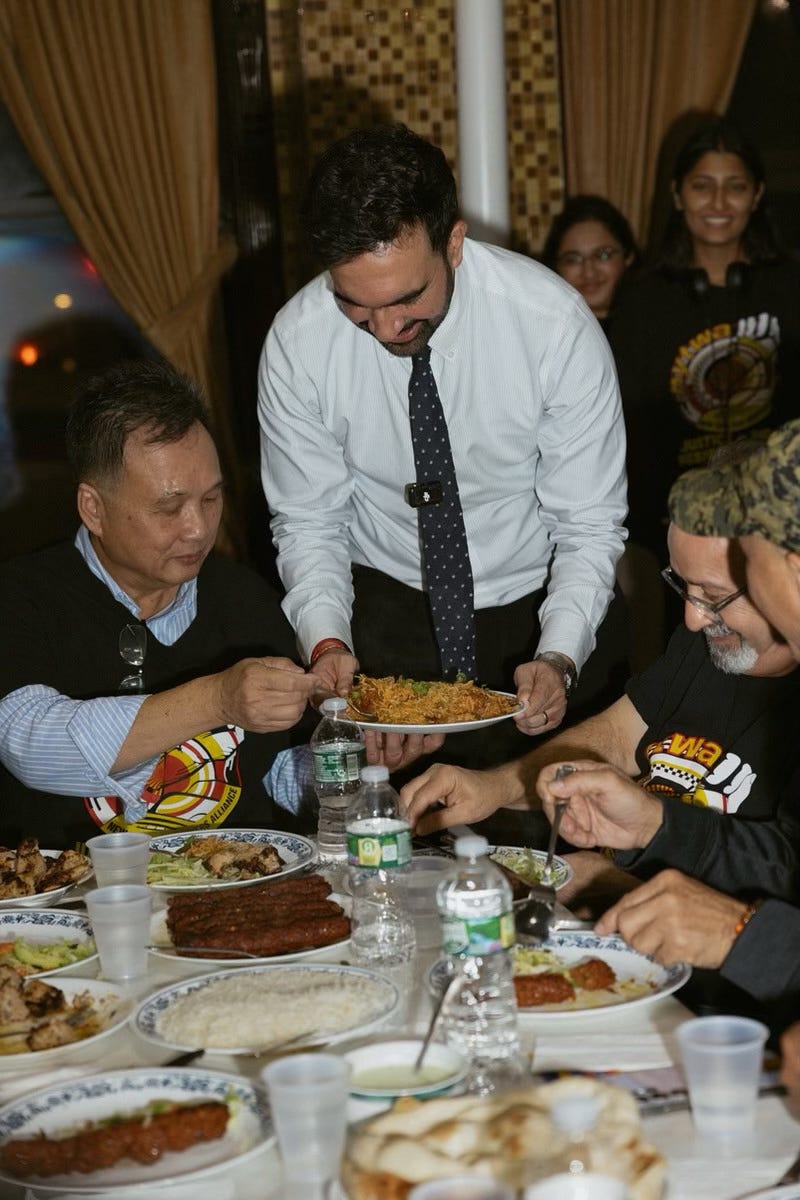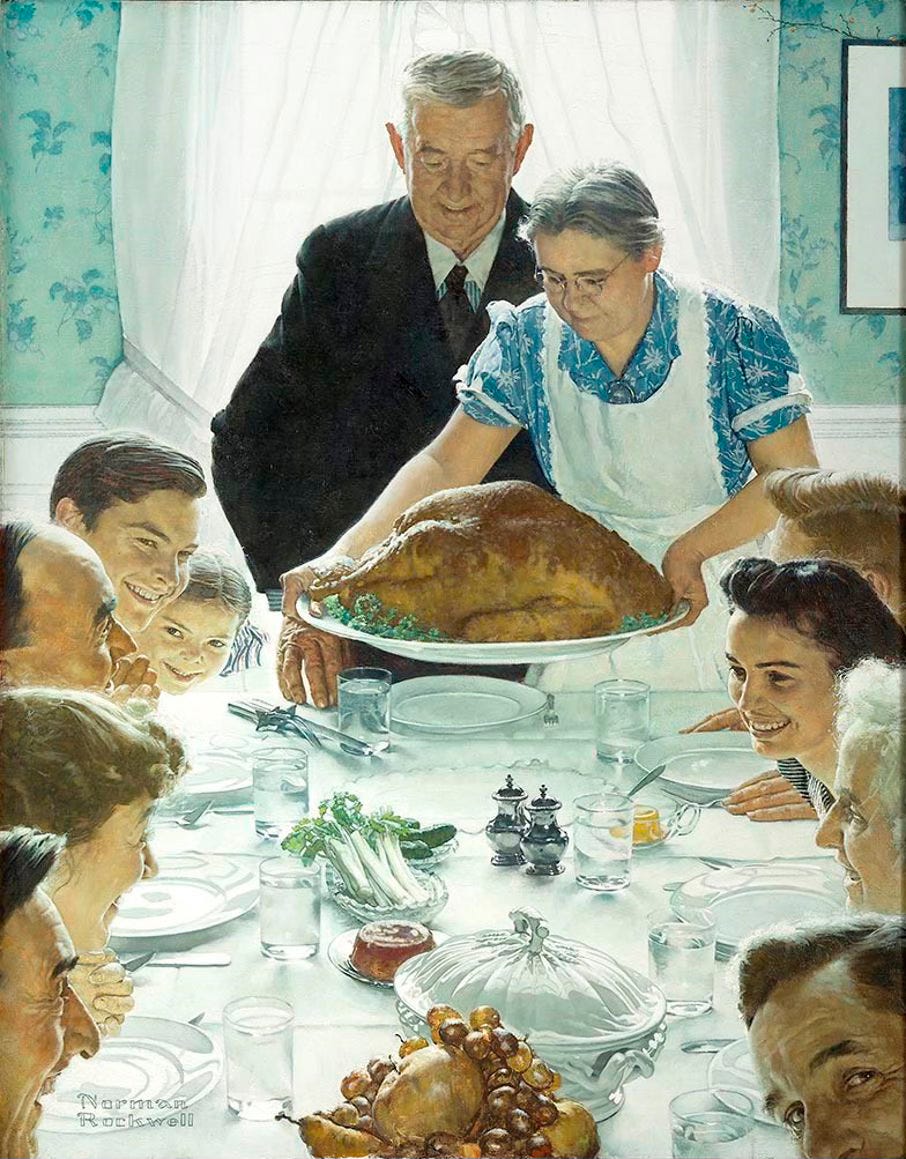"when the city they love finally loves them back"
Brands are vehicles for emotions. You can't build those vehicles with surveys.
There are many lines from Zohran Mamdani’s acceptance speech that rang out to me, but the words in the title of this piece, “when the city they love finally loves them back” rang loudest.
I lived in New York City for 18 years, until the pandemic and high rent pushed us out to a house we hadn’t really planned to live in, in a village built for tourists and wealthy property owners and retirees and a handful of middle class families who depend on seasonal work to get by. I love New York in a way that I haven’t loved very many other cities. In a way I cannot love where I live now.
It was Mamdani’s campaign, especially in contrast to Cuomo’s campaign, that reminded me of the love I feel for New York, and the way, for 18 years, New York tried to love me back. Because Mamdani clearly loves New York City, and loves New Yorkers. Like the city, as E.B. White said, he wants you to be lucky; unlike the city, he wants to make it easier for you to be lucky.
My friend Lori Hamilton said something to me the other day that crystallized an idea I’ve been thinking about. She reminded me that people don’t want the whole puzzle presented to them, completed. They want to be able to add a few pieces, and especially to add the last piece. As she put it, “Every single brand that you are loyal to is an experience… If I sing A-B-C-D-E-F… The audience has to say G. If you say G, they hate you.”
And that made me realize why political polling isn’t helping us understand the electorate at the level we need to understand them, and why the parties struggle to define, maintain and grow their brands.
Because they’re not doing branding, most of the time.
In fact, I’d say that a lot of Democrats have almost an oppositional defiance about brands and how they work. Somehow politics are different, separate from the world of marketing and brands. No, politics is about persuasion, saying just the right magic words using just the right frame. If you calibrate those magic words perfectly you will get people to do what you want them to do.
But that’s not what great brands do.
Great brands get people to do what they want to do.
Great brands love you back.
Great brands offer you grace.
Great brands see you as you see you, only a bit better.
Great brands invite you in.
Great brands don’t ask you to perform for them, the way campaigns and pundits talk about voters performing for a party or campaign - they create the space for people to unfold themselves, to indulge a fantasy, or celebrate a moment, or take the lead, or take a leap, or experience dignity, grace, acceptance.
Years ago, a popular book in the world of advertising was Lovemarks. For a time, every brand wanted to be a ‘loved brand’. Then, as now, the secret to being a ‘loved brand’ is to love your customers back. It’s to understand what they want to do, and get them to do it.
Nike says ‘if you have a body you’re an athlete’ - inviting you to unleash your athlete self and, well, just do it.
Apple says ‘a computer should be a bicycle for the mind’ - showing more interest in what you do with their devices than in what the device does under the hood, celebrating those who Think Different.
These brands understand that people are embodied, contextual, real time; they understand that people have pasts and they have futures; they understand that they seek a sense of purpose, and want to know that there is hope for themselves and their futures.
And they really don’t care about the ‘feeds and speeds’ - the 10 point plans and the pay-fors and the bipartisan negotiations.
The problem with most surveys is that we use them for seeking the magic words, the perfect constellation of features and benefits, policies and positions, that will make people do what we want them to do.
A better version of political research would not be a recapitulated version of political science research; because you’re not doing science, you’re doing marketing.
A better version of political research would not be endless conjoint testing of messages and policies; because you’re not trying to ‘do what’s popular’ to get people to like you, you’re trying to genuinely like people so you can know them and encourage them to do what gives them a sense of purpose.
A better version of political research would try to understand how the super fans became super fans - not in the sense of identifying their ‘influencers’ and information sources but understanding how their motivations propelled them towards and away from the communities that surround politics, and who opened the door to let them in.
A better version of political research would try to understand how to make ideas and make them salient — ideas that help people find purpose, open up hope for themselves and their futures, create conditions for their own modest success.
You can’t ask people who’ve been hard done by how to solve the problems they didn’t create. But you can show them possible solutions, and ask them which ones inspire them, which ones spark desire.
A better version of political research would not prioritize the research itself - its design, or tools, or techniques, or tech. It would worry less about margins of error and randomized control trials, and instead go exploring, creating, staying open, fostering participation. It would be less concerned with predictions and measurements and more concerned with co-creation.
Somehow, Zohran Mamdani managed to do this. I don’t know the inner workings of his campaign, but he started by loving the city he wants to lead, and loving the people he wants to lead it with, and for. He started by listening to them.
That’s not popularism, or populism, or socialism, or communism, or abundance. It’s not even just doing some vox pops.
It’s loving-kindness. It’s metta.
And what a difference loving-kindness makes in a world steeped in edge lord cruelty and “banger memes”, that privileges people who won’t just say what they mean, who avoid apologies, condescend, and are more comfortable talking to other people of their class than to other people in their neighborhood.
Mamdani’s campaign understood that, in a way that — honestly — I’ve never seen any other campaign do. Not even Obama, Bernie, AOC.
This image sticks with me:
Because it reminds me of this image:
That image, by Norman Rockwell, is part of a series he made based on Roosevelt’s Four Freedoms1. This image, that we probably think of as “Thanksgiving” is actually called, “Freedom from Want”.
Many people said Mamdani “ran on affordability”. But I think he ran on the four freedoms.
While I’m on the subject, enjoy this video of Leonard Bernstein conducting Aaron Copland’s “Fanfare for the Common Man” with the New York Philharmonic in 1985. Copland had considered calling it “Fanfare for Four Freedoms.”
It’s been a weird few months personally and professionally, and I took more time off than I meant to. Also, I’m renovating my laundry room mostly by myself, and it takes time to frame walls and hang sheetrock.
Cross Tabs, the podcast, will be back next week.
freedom of speech; freedom of religion; freedom from want; freedom from fear.





I love everything about this Farrah, beautifully said, beautifully articulated, sparkling thinking. Inspiring and practical in equal measure. With a lovely turn of phrase. I’m so grateful to have been mentioned and to be part of your cadre of excellent thinkers. Let’s do this!!!
Sure, pretty, pretty words. Pretty smile.
No experience. Not clear that he doesn't put ideology ahead of pragmatic consensus building--and that's with everyone, including the people he wants to pay for all the good stuff. I would be delighted to be wrong, but I don't see how he succeeds.